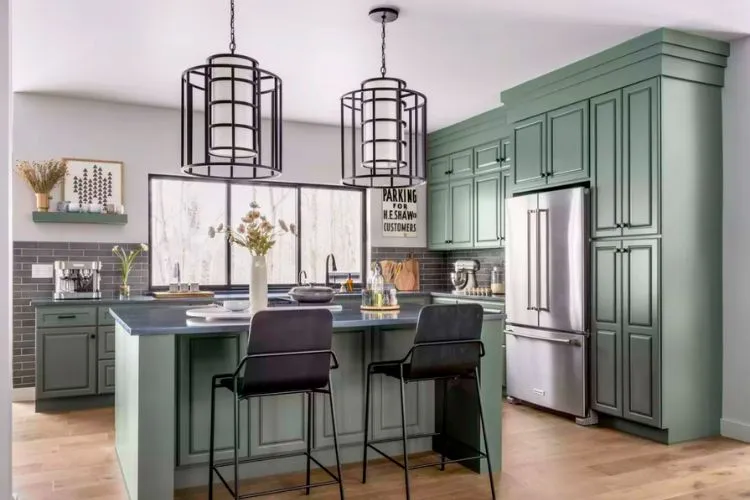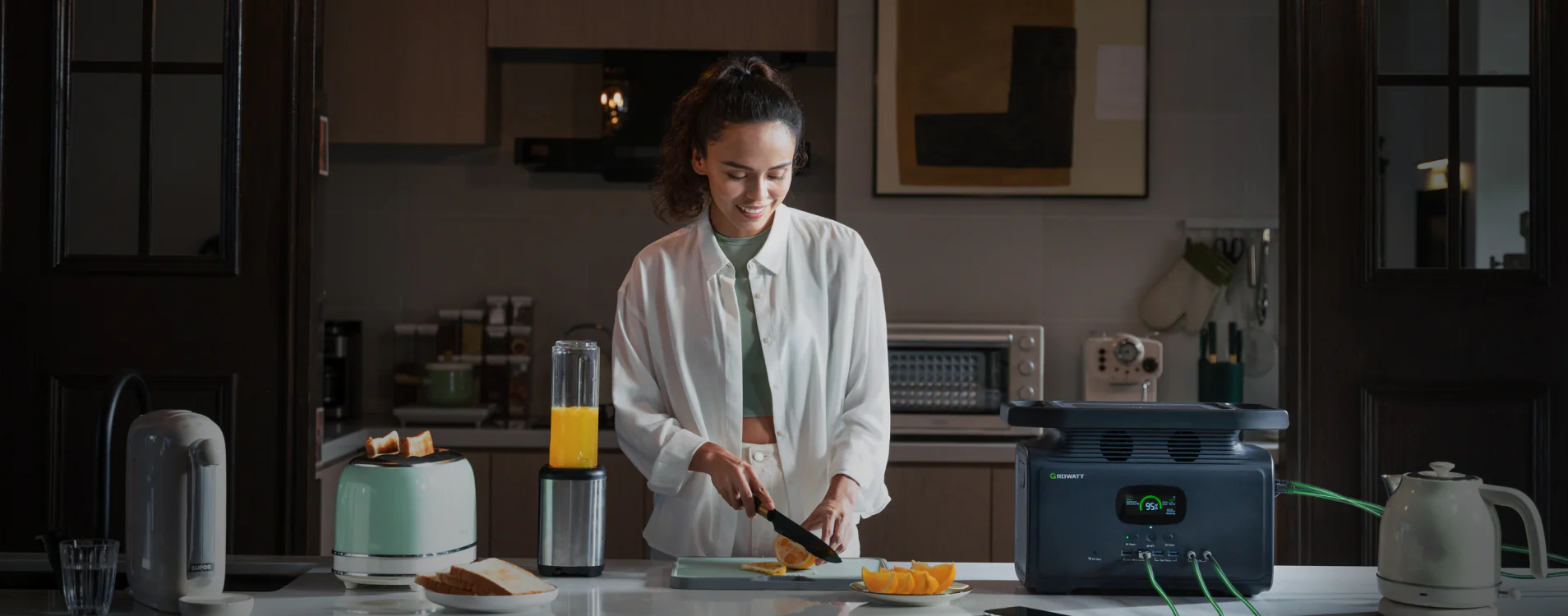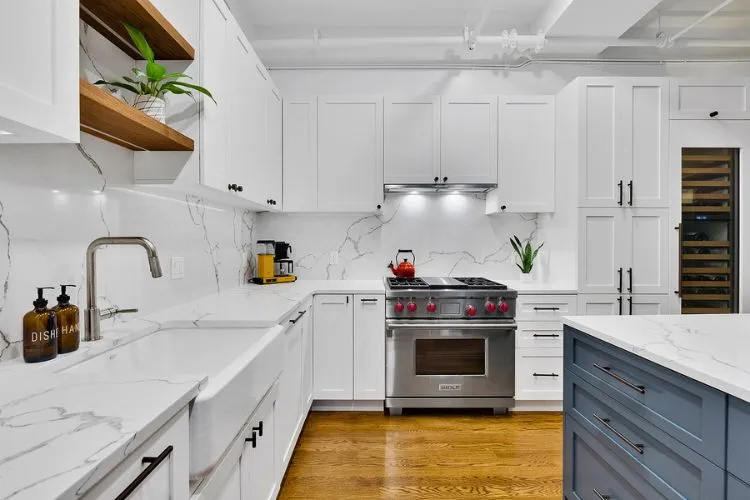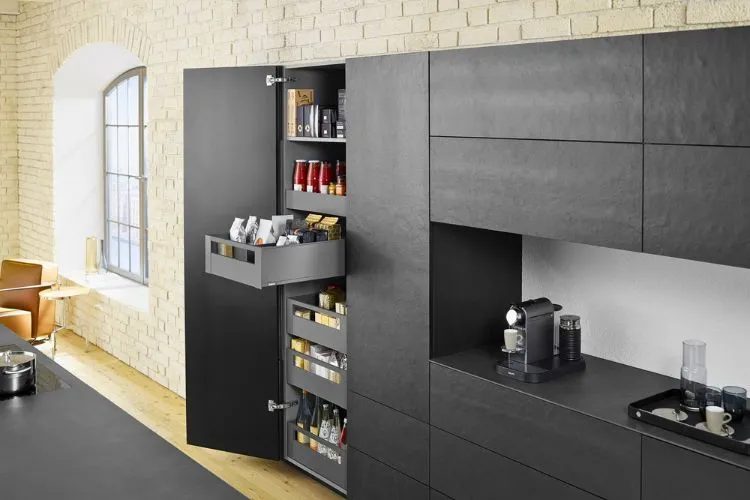In an era where power reliability can sometimes be questionable, having a backup power source for your kitchen might just save the day.
Whether it’s due to natural disasters, scheduled maintenance, or unforeseen mishaps, power outages can be more than just inconvenient—they can spoil your food and disrupt your cooking routines.
This brings us to the pivotal question: Should you purchase a kitchen generator?

Should You Purchase A Kitchen Generator?
A kitchen generator serves as a backup power source specifically for your kitchen appliances.
It ensures that essential tools such as the refrigerator, oven, and lights remain functional during a power outage.
This device can be crucial in maintaining your home’s functionality during unexpected or extended blackouts.
When Do You Need a Kitchen Generator?
There are several circumstances where having a kitchen generator proves advantageous:
- During emergencies: Quick response to natural disasters or sudden power cuts keeps your kitchen operational.
- In areas with frequent power issues: If you live in a place where electricity supply is unstable or frequently interrupted, a kitchen generator provides peace of mind.
- For special occasions: Hosting outdoor events or cooking in off-grid locations can be made seamless with a portable kitchen generator.
Types of Generators Suitable for Kitchen Use
Choosing the right type of generator depends on your specific needs and the setup of your home.

- Standby generators: These are permanently installed and automatically power up when the regular electricity supply disrupts.
- Portable generators: They are movable and versatile but need manual operation to start.
- Inverter generators: Known for their quiet operation and efficiency, these are ideal for smaller, sensitive appliances.
Each type has its advantages. For instance, standby generators offer convenience with their automatic start feature. Portable generators provide flexibility and mobility.
Inverter generators operate more quietly and efficiently, making them suitable for households that require minimal disturbance.
The Pros of Purchasing a Kitchen Generator
Investing in a kitchen generator comes with several benefits:
- Reliability: Ensures that your cooking and food preservation processes are not interrupted during power outages.
- Property value: Homes equipped with backup power solutions often have higher market values and appeal to buyers looking for ready-made convenience.
- Essential for high-risk areas: For homes in locations with regular power disruptions, a generator is almost a necessity rather than a luxury.
To optimize your investment, it’s essential to estimate your power requirements accurately before purchasing. Consider the starting wattage which is crucial for appliances like refrigerators and ovens that require a surge of power to start up.
The Cons of Purchasing a Kitchen Generator
There are also drawbacks to consider:
- Cost: The purchase price, installation, and the ongoing maintenance can be steep.
- Maintenance: Generators require regular checks and servicing to keep them running efficiently and safely.
- Noise and environmental impact: Some generators are noisy and produce emissions.
When looking at these cons, weigh them against the potential long-term benefits and savings. For quieter and eco-friendlier options, inverter generators might be ideal, though they can come with a higher price tag.
Cost-Benefit Analysis
Conducting a cost-benefit analysis is vital when considering the installation of a kitchen generator.
Upfront costs include purchasing the generator itself alongside installation fees, which can seem steep. However, the long-term benefits often outweigh these initial investments.

In regions prone to frequent power outages, not having a generator can lead to significant inconvenience, including spoiled food, which not only represents a financial loss but also a potential health risk.
The value of maintaining a functioning kitchen during power outages extends beyond financial calculations, as it also supports family wellbeing and food security during critical times.
Therefore, the peace of mind and practical benefits provided by a kitchen generator can justify the initial expenditure.
You may also find useful: Inverter vs Generator: Which One is Better Buy For You?
Safety Considerations
Safety should never be compromised. Ensuring proper installation by a professional is essential to avoid hazards. Installing carbon monoxide detectors and ensuring the generator is well-ventilated minimizes risks of poisoning and overheating.
Additionally, adhering to local regulations and building codes is a must for residential generator setups.
Maintenance and Upkeep
To ensure longevity and safe operation, routine maintenance is necessary:

- Regular checks: Inspecting and running the generator periodically ensures readiness when needed.
- Professional servicing: Yearly check-ups by a certified technician can prevent operational failures.
- Fuel management: Proper storage and handling of fuel for generators are crucial for safety and efficiency.
Establishing a maintenance schedule helps in maintaining the efficiency and safety of your kitchen generator.
Frequently Asked Questions (FAQs)
What size generator do I need for my kitchen appliances?
The size depends on the total wattage of your appliances. Add up the wattage of items you plan to power, then choose a generator that exceeds this total to account for starting surges.
Can I install a kitchen generator myself?
Installation often requires professional knowledge of electrical systems. It’s recommended to hire a professional to ensure safety and compliance with local codes.
Are there quiet generator options for residential use?
Yes, inverter generators are known for operating more quietly compared to standard generators, making them a preferred choice for residential areas.
How often will I need to refuel my kitchen generator?
This depends on the generator type, size, and how many appliances it’s powering. Typically, portable generators need refueling every 7-8 hours of continuous use.
Can a kitchen generator power other parts of the house?
Yes, but its capacity to do so will depend on the generator’s power output. Ensure the generator’s wattage meets or exceeds the total consumption of all devices you intend to power.
Conclusion:
Purchasing a kitchen generator involves thoughtful consideration of its advantages against its upkeep and costs.
Assessing your specific needs and situation can provide clarity on whether this investment is right for your home.
Enhanced peace of mind and uninterrupted kitchen functionality are the primary returns on this investment.
In essence, the decision to purchase a kitchen generator should be made with a full understanding of the implications, benefits, and responsibilities it entails. This tool can indeed be a crucial addition to homes where power stability is a constant concern.
